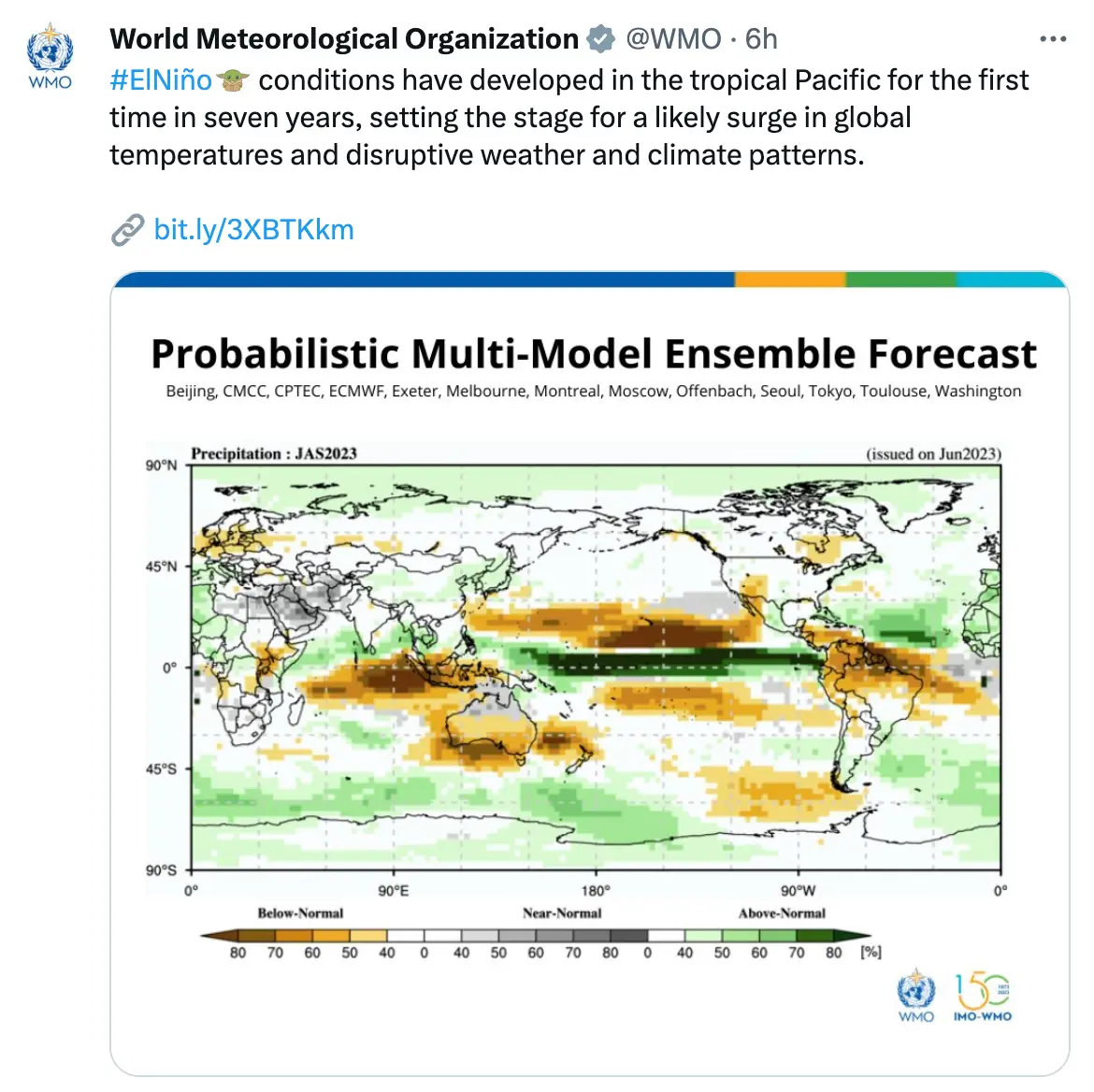
Yesterday was officially recorded as the hottest day ever on Earth, breaking a record set just one day before.
Data from the US National Centers for Environmental Prediction initially confirmed that Monday 3 July was the warmest day on record globally, with the average global air temperature reaching 17.01°C - surpassing the record of 16.92°C set in August 2016.
However, that new record didn’t last long before it was broken...

Advert
On Tuesday, the average temperature hit a staggering 17.18°C.
Until this week, the hottest day on record was in 2016, which was when we had the last El Niño global weather event - which usually leads to increased flooding in regions of the US, South America, the Horn of Africa and central Asia, along with severe heatwaves and droughts in the likes of Australia, Indonesia, South Asia and Central America.
But yesterday, the World Meteorological Organization (WMO) - the UN’s weather body - confirmed El Niño had returned.
“The onset of El Niño will greatly increase the likelihood of breaking temperature records and triggering more extreme heat in many parts of the world and in the ocean,” said WMO Secretary-General Prof. Petteri Taalas in a press release.
“The declaration of an El Niño by WMO is the signal to governments around the world to mobilize preparations to limit the impacts on our health, our ecosystems and our economies.
“Early warnings and anticipatory action of extreme weather events associated with this major climate phenomenon are vital to save lives and livelihoods.”
According to the WMO, El Niño occurs on average every two to seven years, with episodes typically lasting between nine and 12 months.

“It is a naturally occurring climate pattern associated with warming of the ocean surface temperatures in the central and eastern tropical Pacific Ocean,” the body explained.
“But it takes place in the context of a climate changed by human activities.”
Dr Paulo Ceppi, a lecturer in climate science at the Grantham Institute, Imperial College London, pointed out to the Guardian that as El Niño hasn’t peaked yet, and ‘summer is still in full swing’ in the northern hemisphere, it wouldn’t be surprising ‘if the record were broken again in coming days or weeks’.
Dr Karsten Haustein, a research fellow in atmospheric radiation at Leipzig University, also told the outlet: “The coming days will probably see a small downturn, but since the annual global temperature maximum is at the end of July, more days are likely to be warmer than yesterday (given that El Niño is now pretty much in full swing) …
“Chances are that the month of July will be the warmest ever, and with it the hottest month ever … ‘ever’ meaning since the Eemian, which is indeed some 120,000 years ago.”
Topics: Weather, World News